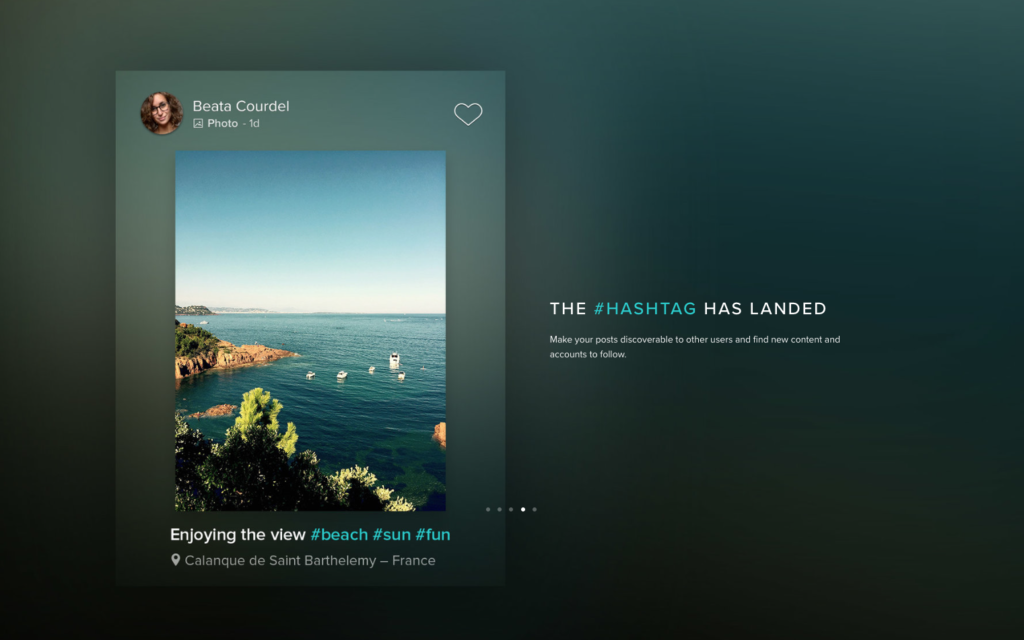 People are always looking for the next big thing whether it’s in business, music, food trends, and yes, even new social media platforms!
People are always looking for the next big thing whether it’s in business, music, food trends, and yes, even new social media platforms!
Without any further ado, introducing Vero. Vero just topped the App Store charts today and is getting a lot of buzz online as a potential Instagram Killer. The main reason people are so excited about Vero is because once you post something, it will appear in your feed chronologically rather than sorted using an algorithm like on Instagram (Hartmans, 2018). Before we get into the deal with Vero let’s take a trip down memory land through the virtual graveyard of failed social media sites and pay our respects to some of the better known failures.
AOL – While technically not the first social media site (one could argue CompuServe, prodigy or BBS sites were) it is one of the best known. There are literally millions and millions of old AOL diskettes and cd’s rotting away in landfills today. In some sense, AOL was the first dip into the pool that people took with the internet. AOL was the Internet before the Internet, and its member-created communities (complete with searchable “Member Profiles,” in which users would list pertinent details about themselves), were arguably the service’s most fascinating, forward-thinking feature. AOL was the Internet before the Internet, and its member-created communities (complete with searchable “Member Profiles,” in which users would list pertinent details about themselves), were arguably the service’s most fascinating, forward-thinking feature (Shah, 2016).
Friendster – Launched in 2002, The grandaddy best known as the first social network that allowed people to share content with friends. Friendster wasn’t widely adopted by users’ friends and families, so their time was better spent on other networks where more of their real-world network was online (Bernazzani).
Myspace – The first site to really bring social media to the masses rapidly fizzled out shortly after trading hands to News Corp for $580M in 2005. MySpace diverted its attention to serving eyeballs to advertisers and fell ever more behind on facilitating the “social” part of social networking (Mui, 2012). Several factors contributed to the fall of this social media titan including a lack of loyalty among users still looking to jump on the next big thing, a failure of innovation, of just plain ol’ bad user interface design. Personally from a designer’s perspective, I feel it was the god-tier level of seizure inducing animated gifs over populating pages that drive users to Facebook’s clean design.
Vine – Acquired by Twitter, Vine was a social network based around sharing 6 second looping video clips. If you are scratching you head, don’t worry, we agree this one is a little hard to wrap your head around. This clip from the movie Something about Mary basically sums up our sentiments on the Death of Vine. https://youtu.be/JB2di69FmhE?t=55s
Digg – Created by Jay Adelson & Kevin Rose, Digg, was/is a news aggregating social media new platform with a front page that incorporated a story submission and voting system. I personally loved Digg and spend many hours trying to “Digg” news stories to the page. Every time people upvoted my submissions, I felt so cool. Digg was also tied in with a popular podcast called Diggnation, however all good things must end. After the podcast stopped and Digg stopped innovating, in 2010 traffic from Digg fell by 97% year on year effectively killing this once promising network (Anderton, 2010). Most users retreated to Reddit which still has a strong following today.
I downloaded Vero and played around a little bit over the last two days. I only have a few dozen contacts using the app, so it’s not that amazing from a social network aspect for me yet and I’m not ready to spam my entire contact directly an email inviting them to try out this new network until I’ve had a week to give Vero a fair shake. I personally like the UI and some of the features, but will it be an Instrgam killer? I doubt it. As of writing this, Vero is a laggy mess. Taylor Lorenz of the Daily Beast put out a hit piece on the “Shady” Founder of Vero here about the #DeleteVero movement. It’s a head scratcher to think this network just launched and it already has a movement to delete the app, which makes me wonder if a silent competitor’s hand is pushing on the scale trying to kill off this app before it reaches critical mass. From my own experience, clicking on the trending hashtag for #cosplay timed out several times and never showed any results. Vero claims there will be no advertising on the app and that it is going to rely on a subscription model – We will see how long this lasts. Vero is offering a free subscription for life for its first million users, a number which is has surely eclipsed since I started writing this post.
References:
Hartmans, A. (2018, February 27). How to use Vero, the No. 1 social media app on the App Store right now that millennials are saying will kill Instagram. Retrieved February 27, 2018, from http://www.businessinsider.com/vero-app-walkthrough-photos-2018-2
Shah, S. (2016, May 12). The history of social networking. Retrieved February 28, 2018, from https://www.digitaltrends.com/features/the-history-of-social-networking/
Bernazzani, S. (n.d.). The Stories Behind 5 Social Networks That Never Caught On. Retrieved February 28, 2018, from https://blog.hubspot.com/marketing/dead-social-networks
Mui, C. (2012, February 18). Why Facebook Beat MySpace, and Why MySpace’s Revised Strategy will Probably Fail. Retrieved February 28, 2018, from https://www.forbes.com/sites/chunkamui/2011/01/12/why-facebook-beat-myspace-and-why-myspaces-revised-strategy-will-probably-fail/#431530242c9a
Anderton, S. (2010, October 01). The death of Digg is not exaggerated. Retrieved February 28, 2018, from https://www.techradar.com/news/internet/web/the-death-of-digg-is-not-exaggerated-720550
